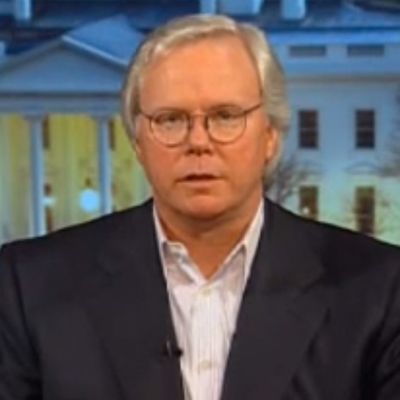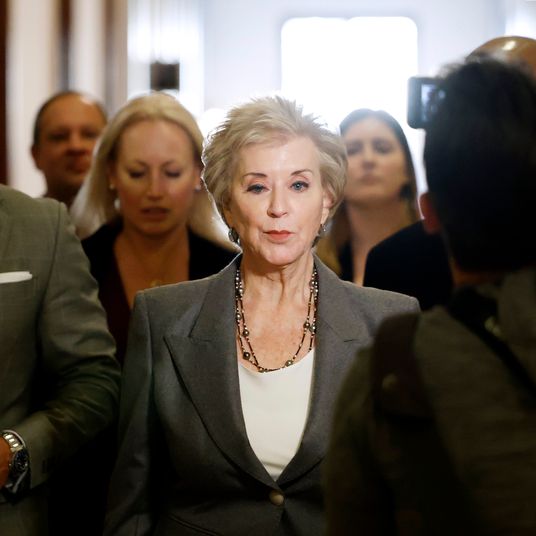
Ed Rogers is not some random goofball spouting off at the local bar, or a talk-radio shouting head paid to rile up the yokels. According to his author tagline in the Washington Post, he “is a contributor to the PostPartisan blog, a political consultant and a veteran of the White House and several national campaigns. He is the chairman of the lobbying and communications firm BGR Group, which he founded with former Mississippi Gov. Haley Barbour in 1991.” That is to say, he is a member of the Republican elite. It would be an insult to intelligent conservatives to describe Rogers as one of his party’s brightest minds, but he is certainly a standard-issue Washington Republican operative, not a crank.
Rogers has a blog post today on the subject of global warming. His argument was considered worthy enough to make the day’s RealClearPolitics roundup, which is how I found it. Rogers is incredulous that President Obama lists global warming as the biggest threat facing the planet. (He clearly disagrees with the consensus predictions of climate scientists, who predict devastating, deadly, and wildly expensive impacts that have already begun.) The Republican stance on climate change is a reflexive partisan sneer. A member of the elite like Rogers actually lies on the more erudite side of the Republican climate-change spectrum. Rogers isn’t running around claiming the continued existence of snow disproves climate science. He prefers to ignore the science rather than argue with it.
Rogers argues that, even if climate science is correct, Obama is ridiculous to worry about it, because there’s nothing he can do to limit it:
The truth is, if you accept at face value everything [Obama] says about climate change, there is nothing he can do in the 20 months he has left in office that will appreciably affect the climate. This is especially true given what the president defines as “success.” He champions his agreement with China on cutting carbon pollution, but all it really means is the United States begins to raise energy costs immediately and China agrees to have a meeting in 2030 to discuss what actions they may or may not take.
Put aside Rogers’s swipe at the bilateral agreement with China to reduce greenhouse-gas emissions. (If you want detailed arguments as to why it will lead to serious reductions in Chinese emissions, read serious nonpartisan analysts like Michael Levi and Bob Sussman.) The truly amazing part of Rogers’s argument is his belief that “there is nothing [Obama] can do in the 20 months he has left in office that will appreciably affect the climate.”
Serious question: Has Rogers heard of the United Nations Conference on Climate Change? It’s a big meeting taking place this summer in Paris, to enact the first international greenhouse-gas-emissions limits in the history of the world. It will not do enough to mitigate the effects of climate change, but it will, if successful, be the most important anti-global-warming step ever. (The point of the U.S.-China deal is to clear the way for success in Paris.) In the event of an agreement, it is 100 percent likely that U.S. conservatives will dismiss the agreement as unworkable, but Rogers does not even gesture in the direction of an argument to this effect. He simply blows right past this massive upcoming climate event on his way to breezily asserting there is nothing on Obama’s climate agenda.
I am not implying that Rogers is misleading his readers by pretending not to know about this. I think he is genuinely unaware. I think this actually reflects the state of “sophisticated” Republican elite thought on climate change. At some level Rogers is probably embarrassed by outright climate-science denial, but he wants to land on the conclusion that the Republican do-nothing stance is correct, and he also doesn’t want to bother paying attention to anything that’s happening with the issue.
The Republicans who care so much about right-wing dogma that they are willing to concoct fantastical pseudoscientific narratives are not the only problem. The workaday Republican elites who don’t even care enough about the issue to learn the updated talking points matter just as much.






























